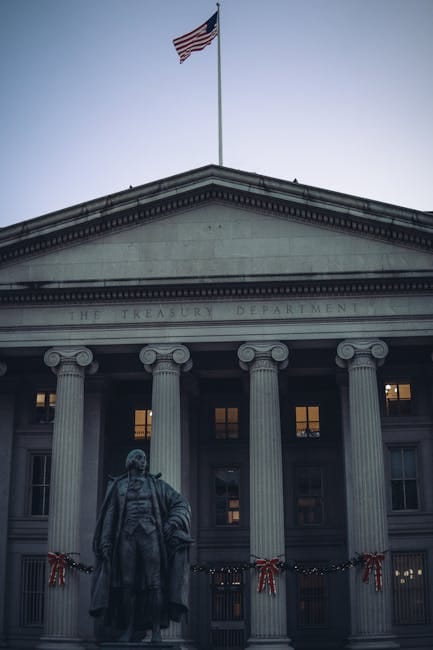Beyond the Signature Count: Why Some Petitions Change Everything While Others Disappear

The Rashford Formula
When Marcus Rashford's free school meals petition reached 1.1 million signatures, it achieved something that the 6.1 million-signature Brexit petition couldn't: it changed government policy. The difference wasn't in the numbers—it was in the ecosystem of power that surrounded each campaign.
Rashford's success came from a perfect storm of factors: celebrity status, media savvy, corporate backing, and most crucially, a cause that didn't threaten elite interests. His petition became a platform for a broader movement that included restaurant chains, supermarkets, and local councils—creating pressure that pure signature counts couldn't match.
"Marcus showed us that petitions are just the beginning," explains campaign strategist Jane McAlevey. "They're most powerful when they're part of a broader organizing strategy."
The Anatomy of Petition Success
Analyzing successful UK petitions reveals a consistent pattern. The most effective campaigns combine several elements:
Media Amplification: Rashford's social media presence and media relationships turned his petition into a national conversation. Similarly, the Brexit petitions gained traction through extensive coverage that framed them as tests of democratic legitimacy.
Coalition Building: Successful petitions create coalitions that extend beyond their initial supporters. The free school meals campaign mobilized parents, teachers, businesses, and community organizations, creating sustained pressure that signatures alone couldn't achieve.
Economic Alignment: Perhaps most importantly, successful petitions either don't threaten elite economic interests or actively support them. The NHS pay petition succeeded because it addressed a genuine crisis without challenging the fundamental structure of healthcare funding.
The Power of Strategic Timing
The 2019 Brexit petitions demonstrate how timing can make or break a campaign. The "Revoke Article 50" petition launched just as Parliament was rejecting Theresa May's deal, capturing a moment of maximum public frustration with the Brexit process.
Yet timing alone wasn't enough. The petition's massive signature count couldn't overcome the political reality that revoking Article 50 would have required Parliament to explicitly reject the 2016 referendum result—a step that few MPs were willing to take.
"The Brexit petitions were perfectly timed but politically impossible," reflects constitutional expert Professor Vernon Bogdanor. "They demonstrated public opinion but couldn't change the political calculus."
The Celebrity Factor
Celebrity endorsement has become crucial for petition success, but it's not just about fame—it's about access to media and political networks. Rashford's Manchester United profile gave him access to sports media, but his thoughtful social media presence and policy expertise gave him credibility with political journalists and policymakers.
This celebrity requirement creates a democratic deficit: causes without famous advocates struggle to gain attention, regardless of their merit or public support. The 2024 beneficial ownership petition, despite reaching 100,000 signatures, remains stalled partly because it lacks celebrity champions.
The Elite Resistance Test
The most revealing factor in petition success is what we might call the "elite resistance test"—how much opposition a petition faces from established power structures. This explains why some massive petitions fail while smaller ones succeed.
The 2025 political donations reform petition faces sophisticated resistance despite its growing support. Wealthy donors, political parties, and financial institutions all benefit from the current system's opacity. Their resistance takes subtle forms: delayed parliamentary responses, technical objections to proposed reforms, and media campaigns emphasizing the complexity of donation rules.
"The system is designed to absorb pressure and minimize change," explains political economist Brett Christophers. "Petitions that threaten real power face resistance that's invisible but effective."
The Government Response Strategy
Government responses to petitions reveal sophisticated strategies for managing public pressure while protecting elite interests. The template is consistent:
- Acknowledge concerns: "We understand the public's frustration..."
- Cite existing measures: "We have already introduced significant reforms..."
- Promise further consideration: "We will continue to monitor the situation..."
- Avoid specific commitments: "We will consider all options..."
This approach neutralizes public pressure while committing to nothing concrete. The 2019 Brexit petition response exemplified this strategy: the government acknowledged the signatures while definitively rejecting the petition's demands.
The Structural Limitations
Even successful petitions operate within structural constraints that limit their impact. The NHS pay petition achieved a 3% increase, but healthcare workers had demanded 12.5%. The free school meals petition secured holiday funding, but child poverty rates remain essentially unchanged.
These partial victories reveal petition limits: they can force governments to respond to immediate crises but struggle to address systemic issues. The £100 billion lost to corruption each year continues because addressing it would require challenging the very structures that enable elite wealth accumulation.
The Education Effect
Perhaps petitions' most valuable function isn't policy change but public education. The 2019 Brexit petitions didn't reverse Article 50, but they did educate millions about the economic costs of leaving the EU. Transparency petitions, even when stalled, teach supporters about how financial secrecy operates.
"Petitions are democratic education in action," argues political scientist Dr. Sarah Childs. "They don't just express opinion—they shape it through the process of engagement."
This educational function may prove more valuable than specific policy victories. When 6.1 million people understand Brexit's hidden costs, or when 100,000 people learn about beneficial ownership loopholes, the foundation for long-term change begins to emerge.
The Future of Petition Democracy
As traditional political institutions struggle with legitimacy crises, petitions offer both hope and frustration. They provide accessible channels for public engagement while operating within systems designed to limit their impact.
The most successful future petitions will likely combine digital organizing with offline coalition-building, media strategy with grassroots mobilization, and immediate demands with long-term education. They'll succeed not just by gathering signatures, but by building the political power necessary to implement change.
The 6.1 million who signed to revoke Article 50 didn't stop Brexit, but they did demonstrate the potential for digital democracy to challenge established power. Whether that potential can be realized depends on learning from both petition successes and failures.
The Democratic Reckoning
In the end, petitions reveal as much about British democracy as they change. They show how public opinion can be mobilized quickly and effectively, but also how that mobilization can be contained and neutralized by existing power structures.
The challenge for future campaigns is moving beyond signature counts to build the sustained political power necessary for systemic change. The Marcus Rashford model shows this is possible—but only when the stars align in ways that most causes can't replicate.
For the millions who have engaged with the petition system, the lesson is clear: democracy isn't just about signing—it's about organizing, mobilizing, and building the coalitions necessary to turn public opinion into political power.
The question isn't whether petitions work, but whether we can make them work for the changes that matter most.
Sources
- McAlevey, Jane. "No Shortcuts: Organizing for Power in the New Gilded Age." Oxford University Press, 2021.
- Bogdanor, Vernon. "Beyond Brexit: Towards a British Constitution." I.B. Tauris, 2019.
- Christophers, Brett. "The New Enclosure: The Appropriation of Public Land in Neoliberal Britain." Verso, 2018.
- Childs, Sarah. "Women and Politics in the UK." Political Studies Association, 2021.
- House of Commons Petitions Committee. "The role of petitions in UK democracy." Parliament.uk, 2021.
- Hansard Society. "Audit of Political Engagement: Democracy Under Pressure." Hansard Society, 2020.
- UK Parliament. "Government Response to Petition: Revoke Article 50 and remain in the EU." Parliament.uk, 2019.
- Social Media and Political Participation Research Group. "Digital Democracy: How Social Media Changed Politics." Political Studies Association, 2020.
- Electoral Reform Society. "Democracy in the UK 2025: A Health Check." Electoral Reform Society, 2025.
- Institute for Public Policy Research. "Power and Democracy: Reforming Political Institutions." IPPR, 2024.





